Super User
The second round of financing application for Metsä Group's nature management programme has started
In the autumn of 2021, Metsä Group launched a ten-year nature management programme to finance regionally effective development projects that are carried out outside commercial Finnish forests and support biodiversity and the state of waters. These projects may relate to bird waters and wetlands, watercourse routes, small waters and coastal environments, pollinator habitats or new water protection methods.
New projects are selected for the programme every six months. The next selections will be made in June 2022. The application period has started and the deadline for applications is at the end of May 2022. Apply for financing here.
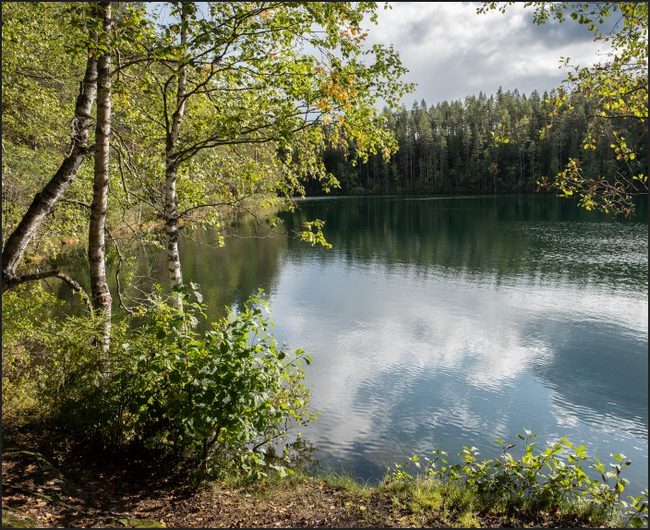
“At Metsä Group, we want to be widely involved in improving the state of Finland's nature also outside the commercial forests, and our nature management program offers good opportunities for this. There are many different ways to improve the state of Finnish nature. The first project selections in our programme focused heavily on waters and fish. I hope that in this second round of proposals, we will also be able to assess in a more comprehensive way projects related to, for example, pollinators, birds and new methods and technologies that improve biodiversity or the state of waters. An impressive nature project can be a large or ingenious new insight with wide-ranging expansion opportunities, improving nature management practices or the living conditions of species,” says Tomi Salo, SVP, Corporate Affairs, at Metsä Group.
For funding to be granted, the project must have proven positive impacts on biodiversity or the state of waters, the applicant must have provided Metsä Group with accurate and adequate information about the funded project, an analysis must have been carried out on different sources of funding, the project must be launched in accordance with the application, and the applicant must meet the Metsä Group’s monitoring and reporting requirements.
“Nature is very important to us all. Everyone can make an impact on nature’s biodiversity and the state of waters, and positive examples at their best encourage new actors to move and increase cooperation for the benefit of nature,” continues Tomi Salo.
Metsä Group
www.metsagroup.com
Metsä Group is leading the way in advancing the bioeconomy. We invest in growth, bioproduct development and a fossil free future. The raw material for our products is renewable wood from sustainably managed northern forests. We focus on the growth sectors of the forest industry: wood supply and forest services, wood products, pulp, fresh fibre paperboards, as well as tissue and greaseproof papers.
Metsä Group’s annual sales amount to approximately EUR 6 billion, and we have around 9,500 employees in 30 countries. Our international Group has its roots in the Finnish forests: our parent company is Metsäliitto Cooperative which is owned by nearly 100,000 forest owners.
BASF has developed new adhesives for labels that no longer interfere with paper and paperboard recycling
BASF has achieved a breakthrough in the development of adhesives that do not interfere with the recycling of transport boxes, such as paperboard and cardboard boxes with paper labels coated with Acronal RCF 3705 or Acronal RCF 3706. Both adhesives have been certified by “Papiertechnische Stiftung” (PTS) for this property. PTS is a German research and service institute that supports companies in all sectors in the development and application of modern fiber-based solutions. The institute carries out materials testing for paper and cardboard packaging. “As we work to achieve worldwide climate neutrality, greater circularity and more effective recycling are a must. By developing the recycling friendly adhesives Acronal RCF 3705 and Acronal RCF 3706, BASF has made a decisive contribution towards more sustainable labeling, for example in the logistics sector,” said Uwe Düsterwald, Project Manager, Sustainability in Adhesives, BASF.
- Acronal RCF 3705 and Acronal RCF 3706 combine good adhesive properties with easy removal from the recovered paper stream during recycling of paperboard packaging
- Positive effect on recyclability certified by “Papiertechnische Stiftung” (PTS foundation)
- BASF contributes to a circular economy in the global label and packaging industry
In addition to the automotive and food industries, logistics is another sector with a high demand for pressure-sensitive labels. For several years until today, transport labels have comprised the fastest growing share of the market. This is confirmed by Alexander Watson Associates (AWA) Market Reports such as “European Labeling and Product Decoration 2017” and the “Global Annual Review Labeling and Product Decoration 2020”. This trend has been reinforced by the pandemic in 2020 and 2021 with rapid growth in e-commerce and mail order sales, which currently accounts for almost 15% of the demand for labels in Europe.
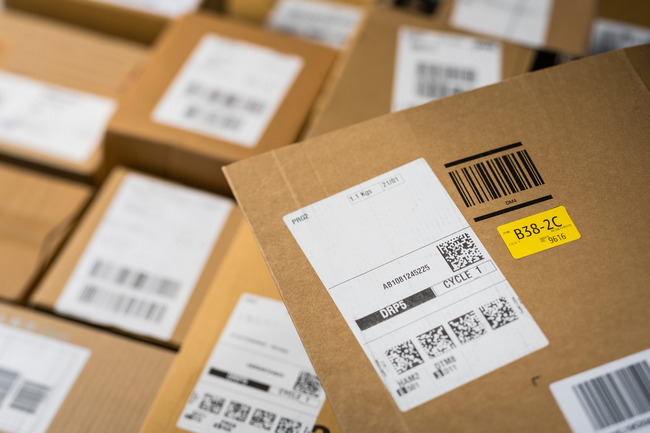 By developing new adhesives for labels Acronal RCF 3705 and Acronal RCF 3706, BASF has made a decisive contribution towards more sustainable labeling, as they no longer interfere with paper and paperboard recycling.
By developing new adhesives for labels Acronal RCF 3705 and Acronal RCF 3706, BASF has made a decisive contribution towards more sustainable labeling, as they no longer interfere with paper and paperboard recycling.
These innovative adhesives solve a fundamental problem for paper and cardboard packaging recycling. While most of the adhesives used for paper labels interfere with the paper recycling process, the newly developed adhesives are easy to remove early in the process, making it possible to reuse and print recycled paper or paperboard packaging without any further issues.
This solution reaffirms BASF’s commitment to achieving a sustainable circular economy as set forth in the European Union’s Green Deal. By passing the Green Deal, the EU sets the objective of achieving climate neutrality in industry and society by 2050. To help reach this target, BASF became a founding member of the cross-industry coalition CELAB (Toward a Circular Economy for Labels) in 2020. The global network is working on solutions to reduce the environmental impact of the labeling industry and to promote a circular economy for self-adhesive labels in all industries. As Thomas Schiele, Vice President Adhesives, Fiber Bonding and Paper Coating Chemicals at BASF, pointed out, “The constantly growing demand for packaging has made its recyclability a key issue for the packaging industry. Steps need to be taken, not only with respect to the packaging materials, but also the adhesives that are being used. Our innovative adhesive technologies open up completely new possibilities for a working circular economy, both in the packaging industry as well as in many other sectors.”
For additional information about BASF, visit www.basf.com/adhesives.
BASF’s Dispersions & Resins division
The Dispersions & Resins division of BASF develops, produces and markets a range of high-quality polymer dispersions, resins, additives and electronic materials worldwide. These raw materials are used in formulations for a number of industries, including coatings, construction, adhesives, printing and packaging, electronics and paper. With its comprehensive product portfolio and its extensive knowledge of the industry, the Dispersions & Resins division offers its customers innovative and sustainable solutions and helps them advance their formulations. For further information about the Dispersions & Resins division, please visit www.dispersions-resins.basf.com.
About BASF
At BASF, we create chemistry for a sustainable future. We combine economic success with environmental protection and social responsibility. More than 110,000 employees in the BASF Group contribute to the success of our customers in nearly all sectors and almost every country in the world. Our portfolio is organized into six segments: Chemicals, Materials, Industrial Solutions, Surface Technologies, Nutrition & Care and Agricultural Solutions. BASF generated sales of €59 billion in 2020. BASF shares are traded on the stock exchange in Frankfurt (BAS) and as American Depositary Receipts (BASFY) in the U.S. Further information at www.basf.com.
ABB completes remote commissioning of new actuator for India’s largest paper and paperboards business
ABB has successfully completed the installation and remote commissioning of the new Slice xP (II) Profiler system, a new actuator for slice lip weight control, at ITC Paperboards and Specialty Papers’ Tribeni mill in West Bengal, India.
- ITC Paperboards and Specialty Papers, which is among the country’s most technologically advanced and eco-friendly paper businesses, has upgraded to ABB’s Slice xP (II) Profiler system, a new actuator for slice lip weight control
- ABB India’s Pulp & Paper Quality Control Systems (QCS) team completed remote commissioning as part of a modernization project at the mill in West Bengal state
- Switch to the latest system enhances reliability and accuracy, with the fastest possible recovery from grade changes and process upsets
The project, managed by the specialist Quality Control Systems (QCS) team at ABB India, included the replacement of ABB’s existing cross-direction (CD) weight control system (Slice Profiler) with the latest Slice xP (II) Profiler under product phase out notification. The Slice xP (II) is ABB’s latest actuator technology for slice lip weight control head boxes and falls within the weight extended profiling (xP) family designed to meet exacting specifications that exceed process requirements.
As a result of the upgrade to Slice xP, which is easy to install and maintain, ITC will benefit from reduced CD profile variability and advanced diagnostics through the built-in monitoring of each actuator. Its high-speed, non-contact positioning sensors ensure precision even after a power loss. This enables mills to achieve a fast recovery from grade changes and process upsets.
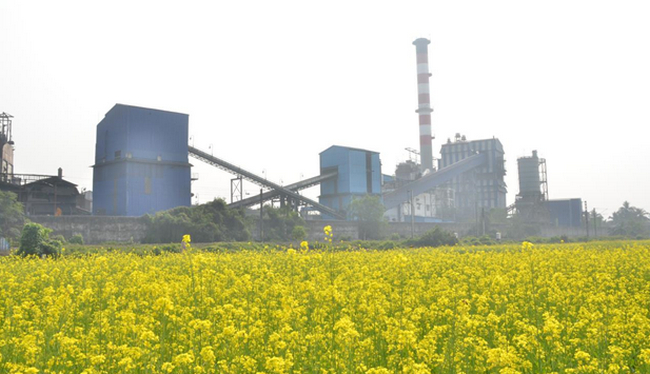
ITC’s Tribeni mill has produced a diverse range of industrial and fine papers for more than 50 years, with production capacity standing at 50,000 tons per annum. As well as having all relevant ISO accreditations for quality management, environmental standards and health and safety, ITC is Forest Stewardship Council® - Chain of Custody certified; it uses responsibly produced raw materials including timber sourced from sustainably managed forests.
“The move from a phase out product to a new product not only improves our reliability and achieves higher maintenance, but it also reduces our risk of breakdown and therefore inventory costs,” said Biplab Bhattacharya, Head of Electrical & Instrumentation at ITC Paperboards and Specialty Papers. “ABB’s well-considered lifecycle policy enabled us to be proactive with our upgrade strategy. The team’s ability to deliver remotely was critical in achieving our modernization goals to schedule.”
“This has been a significant advancement of remote commissioning for ABB, made possible by the team’s strong domain expertise. Despite several challenges related to health and safety, logistics, and the fact it was the first time we’ve had to commission such a system in India using remote support, we are pleased that the entire process went smoothly and without any issues,” said Rajmohan Arumugam, Engineering Manager – QMS at ABB. “The upgrade will help ITC to improve quality and reliability over the actuator’s lifecycle to ensure on-spec paper at the lowest cost.”
The Weight xP actuator family is an integral part of the ABB Ability™ Quality Management System, which is based on the ABB Ability™ System 800xA distributed control system (DCS). It has a more precise non-contacting sensor that does not lose position even after power loss and the state-of-the-art patented Measurement Fusion Techniques – to model the position of the actuator in software and compare this against the position measured by the physical sensor and provide real-time diagnostics performed when the actuator is in motion. The latest actuators are even more accurate, representing the most progressive solution in the field. A removable service module also allows for rapid actuator replacement with no impact on slice lip alignment or profile disturbance.
ABB has an unmatched history of providing superior linear and radial actuator technology. ABB pioneered stepper control of headbox slice spindles in 1985. Since then, close to a thousand headboxes have used ABB actuators and controls to produce CD weight profiles with consistently low variability.
ABB (ABBN: SIX Swiss Ex) is a leading global technology company that energizes the transformation of society and industry to achieve a more productive, sustainable future. By connecting software to its electrification, robotics, automation and motion portfolio, ABB pushes the boundaries of technology to drive performance to new levels. With a history of excellence stretching back more than 130 years, ABB’s success is driven by about 105,000 talented employees in over 100 countries. www.abb.com
ABB Process Automation is a leader in automation, electrification and digitalization for the process and hybrid industries. We serve our customers with a broad portfolio of products, systems, and end-to-end solutions, including our # 1 distributed control system, software, and lifecycle services, industry-specific products as well as measurement and analytics, marine and turbocharging offerings. As the global #2 in the market, we build on our deep domain expertise, diverse team and global footprint, and are dedicated to helping our customers increase competitiveness, improve their return on investment and run safe, smart, and sustainable operations. go.abb/processautomation
Wood fiber costs increased for softwood pulp producers worldwide in 2021 but decreased for manufacturers of hardwood pulp

Wood fiber costs for pulp manufacturers have gone up in practically all countries covered by the WRQ over the past year. In the 3Q/21, the Softwood Fiber Price Index (SFPI) was at its highest level since 2014, 8.1% higher than the 3Q/20. The most significant price increases have occurred in Western Canada, US South, Latin America, and Oceania. Softwood pulplog prices in the US South were up 9% y-o-y, an unusual jump in a region with relatively small price adjustments historically. Other noteworthy price increases were for softwood chips in Western Canada (+11% y-o-y) and softwood pulplogs in France (+9%), Brazil (+20%), and Chile (+15%).
The Hardwood Fiber Price Index (HFPI) has moved up the past year, following a downward trend of almost ten years since its record high in 2011. Despite the recent increases, the HFPI is currently about 4% below its 30-year average. In the past year, hardwood pulplog prices have gone up in practically all the primary hardwood pulp-producing regions of the world.
Wood raw-material costs for Brazilian pulp manufacturers increased almost 10% q-o-q in the 3Q/21. Log demand has been high in the solid wood sector, with sawmills and veneer plants increasingly competing for small-diameter logs that typically would be used by pulpmills, composite board manufacturers, and the pig iron industry. The pig iron sector is a significant consumer of eucalyptus logs for charcoal and its production grew by 18% y-o-y in the 3Q/21.
The high log demand and tight supply pushed prices for sawlogs and pulplogs to all-time highs in Brazilian Real terms. In US dollar terms, Eucalyptus pulplog prices have increased by over 20% from their 15-year low levels in early 2021. Despite the substantial jump in wood fiber costs over the past year, Brazil's pulpmills continue to have some of the lowest wood fiber costs of all regions tracked by the WRQ.
Wood fiber costs for Chilean pulpmills have also been on an upward trajectory the past year in the local currency, reaching a record high in the 3Q/21. As a result, eucalyptus pulplog prices have almost doubled in ten years in Pesos terms. However, due to a weakening Chilean currency, the price movements in the US dollar have been more modest, with current levels being closer to their ten-year average. The country's pulp industry is very competitive in the global market due to its hardwood pulpwood costs being substantially lower than in North America and Europe.
Are you interested in the worldwide wood products market? The Wood Resource Quarterly (WRQ) is a 75-page report established in 1988 and has subscribers in over 30 countries. The publication tracks prices for sawlog, pulpwood, lumber, and pellets and reports on trade and wood market developments in most key regions worldwide. For more insights on the latest international forest product market trends, please go to www.WoodPrices.com
Rottneros and Arctic Paper will invest in a fiber tray factory
The boards of Rottneros and Arctic Paper have decided to invest 15 million euro in a moulded fiber tray factory at Arctic Papers premises in Kostrzyn, Poland. The factory will be operated in a separate legal entity and as a 50/50 joint venture, in line with the LOI that was signed by the parties on October 22nd, 2021.
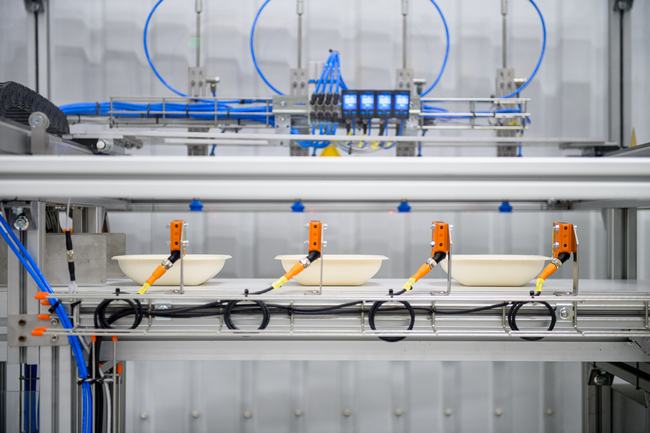
“We are seeing a rapidly growing demand for moulded fiber trays, and we are pleased to announce that we are now ready to move forward with our plan to launch the first industrial scale production of high barrier fiber-based packaging. The collaboration of the two parties combines Arctic Papers favorable location and existing infrastructure with Rottneros technological know-how and will bring benefits to both companies”, said the CEOs of Rottneros and Arctic Paper, Lennart Eberleh and Michal Jarczyński, in a joint statement.
The production of moulded fiber trays will be suitable for high barrier packaging, modified atmosphere packaging with extended shelf life as well as for packaging with lesser functional demands, all based on Rottneros primary fiber. The products can withstand heat and are excellent for ready-made food - both frozen and chilled dishes - which constitutes a rapidly growing market. The start-up of the new factory is planned for the end of 2023.
The investment is expected to amount to 15 million euro and will produce around 80 million trays per year, with an estimated annual revenue of 9 – 11 million euro and an EBIT margin of more than 20 percent when fully operational.

The joint venture will be a Polish registered company and financed through a combination of bank loans and equity contribution from the shareholders.
Rottneros is an independent producer of market pulp. The Group comprises the parent company Rottneros AB, listed on Nasdaq Stockholm, and its subsidiaries Rottneros Bruk AB and Vallviks Bruk AB with operations involving the production and sale of market pulp. The Group also includes Rottneros Packaging AB, which manufactures fibre trays, the wood procurement company Rottneros Baltic SIA in Latvia and the forest operator Nykvist Skogs AB. The Group has about 316 employees and had a turnover of approximately 2,3 billion SEK in the 2021 financial year.
ANDRITZ receives repeat order to supply two heat recovery chains for tissue production to ICT
International technology group ANDRITZ has received an order from ICT Poland to deliver two heat recovery chains for the PM12 and PM14 tissue machines at its mill in Kostrzyn.
Start-up is scheduled for 2022.
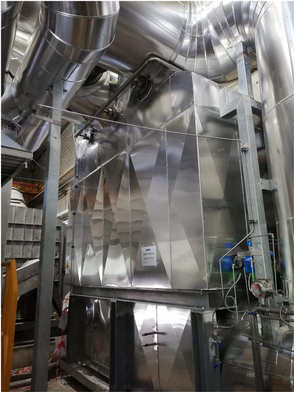 The PrimeDry YES Yankee Ecosteam system by ANDRITZ Novimpianti enables remarkable energy savings. © ANDRITZThe heat recovery chains will be supplied by ANDRITZ Novimpianti and include a PrimeDry YES Yankee Ecosteam system that produces high-pressure steam by utilizing exhaust air from the Yankee hood. This steam is used directly as motive steam for the Yankee, thus reducing energy costs and CO2 emissions.
The PrimeDry YES Yankee Ecosteam system by ANDRITZ Novimpianti enables remarkable energy savings. © ANDRITZThe heat recovery chains will be supplied by ANDRITZ Novimpianti and include a PrimeDry YES Yankee Ecosteam system that produces high-pressure steam by utilizing exhaust air from the Yankee hood. This steam is used directly as motive steam for the Yankee, thus reducing energy costs and CO2 emissions.
With a capacity of about 620,000 t/a, ICT numbers among Europe’s leading tissue producers. ICT and ANDRITZ partnered for the first time in 2001 when ANDRITZ successfully installed the PM 11 tissue production line at ICT Poland in Kostrzyn. This was followed by several conjoint projects in Europe.
This order once again confirms the expertise of ANDRITZ Novimpianti in sustainable drying technology. Last year, the company installed a PrimeDry YES for the first time at ICT in Piano di Coreglia, Italy.
ANDRITZ GROUP
International technology group ANDRITZ offers a broad portfolio of innovative plants, equipment, systems and services for the pulp and paper industry, the hydropower sector, the metals processing and forming industry, pumps, solid/liquid separation in the municipal and industrial sectors, as well as animal feed and biomass pelleting. Plants for power generation, flue gas cleaning, recycling, and the production of nonwovens and panelboard complete the global product and service offering. Innovative products and services in the industrial digitalization sector are offered under the brand name Metris and help customers to make their plants more user-friendly, efficient and profitable. The publicly listed group has around 26,800 employees and more than 280 locations in over 40 countries.
ANDRITZ PULP & PAPER
ANDRITZ Pulp & Paper provides equipment, systems, complete plants and services for the production of all types of pulp, paper, board and tissue. The technologies and services focus on maximum utilization of raw materials, increased production efficiency and sustainability as well as lower overall operating costs. Boilers for power generation, flue gas cleaning systems, plants for the production of nonwovens and panelboard (MDF), as well as recycling and shredding solutions for various waste materials also form a part of this business area. State-of-the-art IIoT technologies as part of Metris digitalization solutions complete the comprehensive product offering.
New ABB study on industrial transformation unveils critical relationship between digitalization and sustainability
ABB has just released the findings of a new global study[1] of international business and technology leaders on industrial transformation, looking at the intersection of digitalization and sustainability. The study, “Billions of better decisions: industrial transformation’s new imperative,” examines the current take-up of the Industrial Internet of Things (IoT) and its potential for improving energy efficiency, lowering greenhouse gas emissions and driving change. The goal of the new ABB research is to spur discussion within industry regarding opportunities to leverage the Industrial IoT and empower companies and workers to make better decisions that can benefit both sustainability and the bottom line.
“Sustainability goals more and more are a crucial driver of business value and company reputation, and Industrial IoT solutions are playing an increasingly important role in helping enterprises achieve safe, smart and sustainable operations,” said Peter Terwiesch, President of ABB’s Process Automation business area. “Unlocking insights hidden in operational data holds the key to enabling literally billions of better decisions throughout industry and acting upon them, with significant gains in productivity, reduced energy consumption and lower environmental impact.”
The study, commissioned by ABB, found that an organization’s “future competitiveness” is the single greatest factor – cited by 46 percent of respondents – in industrial companies’ increased focus on sustainability. Yet while 96 percent of global decision-makers view digitalization as “essential to sustainability,” only 35 percent of surveyed firms have implemented Industrial IoT solutions at scale. This gap shows that while many of today’s industrial leaders recognize the important relationship between digitalization and sustainability, the adoption of relevant digital solutions to enable better decisions and achieve sustainability goals needs to accelerate in sectors like manufacturing, energy, buildings and transport.

Further key learnings from the study
- 71 percent of respondents reported greater priority given to sustainability objectives as a result of the pandemic
- 72 percent said they are “somewhat” or “significantly” increasing spending on Industrial IoT due to sustainability
- 94 percent of respondents agreed the Industrial IoT “enables better decisions, improving overall sustainability”
- 57 percent of respondents indicated the Industrial IoT has had a “significant positive effect” on operational decision-making
- Perceived cybersecurity vulnerabilities are the #1 barrier to improving sustainability through the Industrial IoT
Win-win scenarios with the Industrial IoT
With 63 percent of executives surveyed strongly agreeing that sustainability is good for their company’s bottom line, and 58 percent also strongly agreeing it delivers immediate business value, it’s clear that sustainability and traditional priorities of Industry 4.0 efforts – speed, innovation, productivity, efficiency, customer-centricity – are increasingly intertwined, opening up win-win scenarios for companies looking to drive efficiency and productivity while making strides on climate change.
“The International Energy Agency[2] estimates that industry accounts for more than 40 percent of global greenhouse gas emissions today,” said Terwiesch. “If we are to reach climate objectives such as the UN’s Sustainable Development Goals and the Paris Agreement, industrial organizations need to implement digital solutions as part of their sustainability strategies. Embracing these technologies at all levels – from the boardroom to the facility floor – is key, as every member of the industrial workforce can become a better decision-maker when it comes to sustainability.”
ABB innovations for sustainability
ABB is committed to leading with technology to enable a low-carbon society and a more sustainable world. Over the past two years, ABB has reduced greenhouse gas emissions from its own operations by more than 25 percent. As part of its Sustainability strategy 2030, ABB expects to be fully carbon neutral by decade’s end and to support its global customers in reducing their annual CO2 emissions by at least 100 megatons by 2030, the equivalent of removing 30 million combustion cars from the roads each year.
ABB’s investments in digital capabilities are core to this commitment. With more than 70 percent of ABB’s R&D resources dedicated to digital and software innovations, and a robust ecosystem of digital partners, including Microsoft, IBM and Ericsson, the company has established a leading presence in Industrial IoT.
The ABB AbilityTM portfolio of digital solutions enables a host of industrial use cases to power improvements in energy efficiency, resource conservation and circularity, including condition monitoring, asset health and management, predictive maintenance, energy management, simulation and virtual commissioning, remote support and collaborative operations. Examples of ABB’s more than 170 Industrial IoT solutions include ABB AbilityTM Genix industrial analytics and AI suite; ABB AbilityTM Energy and Asset Manager; ABB AbilityTM Condition Monitoring for Powertrains; and ABB AbilityTM Connected Services for industrial robots. To learn more about ABB Ability, visit: https://global.abb/topic/ability/en
To continue the conversation on this important topic, ABB will host an industry webinar on Wednesday, March 2, focused on the convergence of digitalization and sustainability, and how the Industrial IoT and related technologies can help save energy, conserve resources, and improve safety for personnel and communities. Leading technology journalist and climate investor Molly Wood will moderate this virtual panel discussion featuring senior executives, best-selling authors and other thought leaders to explore this convergence and how industrial organizations can empower better, more sustainable decision-making throughout the enterprise.
ABB (ABBN: SIX Swiss Ex) is a leading global technology company that energizes the transformation of society and industry to achieve a more productive, sustainable future. By connecting software to its electrification, robotics, automation and motion portfolio, ABB pushes the boundaries of technology to drive performance to new levels. With a history of excellence stretching back more than 130 years, ABB’s success is driven by about 105,000 talented employees in over 100 countries. www.abb.com
SCA appoints new CFO
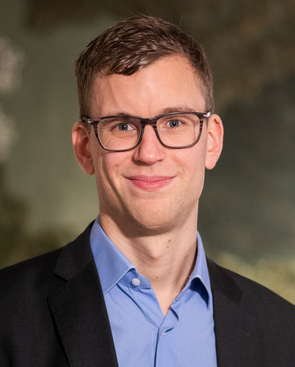 Andreas Ewertz as its new CFOSCA has appointed Andreas Ewertz as its new CFO. Ewertz has worked at SCA since 2017, where he has been responsible for investor relations and served as head of business control for business areas Publication Paper and Pulp, respectively.
Andreas Ewertz as its new CFOSCA has appointed Andreas Ewertz as its new CFO. Ewertz has worked at SCA since 2017, where he has been responsible for investor relations and served as head of business control for business areas Publication Paper and Pulp, respectively.
Ewertz, who will become a member of SCA group management, will take up the position as CFO on May 1, 2022. Prior to his employment at SCA, Ewertz worked in a number of different roles at Handelsbanken Capital Markets. Ewertz, born in 1987, holds a Master’s degree in Industrial Engineering and Management from Linköping University.
Ewertz replaces current CFO, Toby Lawton, who is leaving his position for personal reasons.
AFRY to design sustainable textile fibre biofactory for Altri in Spain
Altri has awarded AFRY engineering, site selection and integrated environmental authorization services assignment for a greenfield textile fiber factory in Spain. In addition, AFRY will support Altri to conceive, create and implement foundations for Industry 4.0 technologies in this new plant.
The demand for sustainable textile fibres is growing quickly globally. To support this growth, the Portuguese pulp producer Altri has become the industrial partner to public-private consortium Impulsa (Society for the Development of Strategic Projects of Galicia) as the lead investor and technologist to study the wood-based textile fibers biofactory exclusively. This biofactory will use Galician wood as the primary raw material together with recycled remains from the textile industry to produce dissolving pulp and Lyocell fibre. The plant will be designed based on the best available techniques (BAT), best environmental practices, as well as cutting-edge proven technologies and the production will be fossil-fuel-free. The project is expected to benefit from the “Next Generation EU” program.
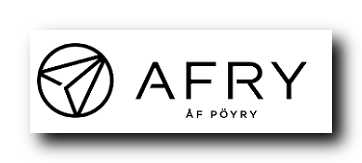 Altri is responsible for designing and developing the biofactory project to transform wood into a textile fiber, evaluating site locations and exploring alliances with the entire value chain. Altri has assigned AFRY to support the project development and planned project implementation.
Altri is responsible for designing and developing the biofactory project to transform wood into a textile fiber, evaluating site locations and exploring alliances with the entire value chain. Altri has assigned AFRY to support the project development and planned project implementation.
The industrial biorefinery to be built from scratch will be able to provide the textile cluster of the Iberian peninsula with sustainable cellulosic fibers, contributing to the strengthening of the circular economy and decarbonisation of an important economic sector such as the textile sector.
AFRY has been involved in the project development from the very early stages. AFRY supported the project concept idea initially developed by Altri and led the preliminary feasibility study. A multi-disciplinary team of AFRY’s engineering and consulting experts is currently supporting Altri on the site selection activities, engineering and permitting processes.
“We are proud to be part of this strategic project in Spain with the target to take big steps towards sustainable fashion in Spain and Europe. Increased use of wood-based fibres in the textile industry with a plan to combine it with recycled textile fibres will open several new opportunities in this sector. Already in the early planning phase of the project, we see great future opportunities in supporting Altri’s digital strategy development,” says Nicholas Oksanen, EVP and Head of Division Process Industries at AFRY.
AFRY is a European leader in engineering, design, and advisory services, with a global reach. We accelerate the transition towards a sustainable society.
We are 16,000 devoted experts in infrastructure, industry, energy and digitalisation, creating sustainable solutions for generations to come.
Making Future
Metsä Board’s co-creation workshop results in an innovative insect hotel
Finnish Golf Coat Oy is launching a new golf ball packaging that, when empty, takes on a second life as an insect hotel. The innovative packaging is a result of a co-creation workshop organised by Metsä Board, part of Metsä Group. The workshops are part of Metsä Board’s 360 Services that cover the whole packaging value chain by utilising the state-of-the-art Excellence Centre in Äänekoski, Finland. The design of the golf ball packaging was a collaboration involving a packaging design agency, Metsä Board's own packaging design team, the packaging manufacturer and Metsä Board's technical service.
“The packaging is an excellent example of how teamwork can create something totally new. In 2021 we organised 36 virtual workshops with our customers and partners. The process concentrated on improving the current package whilst creating something completely new, like this insect hotel”, says Gunilla Nykopp, Customer Experience Manager from Metsä Board’s packaging design team.
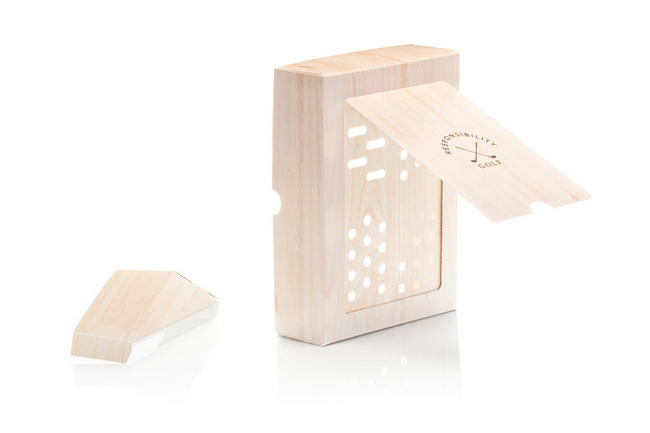
When empty the packaging can be turned into an insect hotel providing shelter for bugs and larvae thanks to separate parts made of paperboard included in the cover. The packaging was manufactured by PackageMedia Oy, part of Pyroll Packaging using MetsäBoard Pro FBB Bright folding boxboard.
Metsä Board
www.metsaboard.com
Metsä Board is a leading European producer of premium fresh fibre paperboards. We focus on lightweight and high-quality folding boxboards, food service boards and white kraftliners. The pure fresh fibres we use in our products are a renewable resource, traceable to origin in sustainably managed northern forests. We are a forerunner in sustainability, and we aim for completely fossil free mills and raw materials by 2030.
Together with our customers we develop innovative packaging solutions to create better consumer experiences with less environmental impact. In 2020, our sales totalled EUR 1.9 billion, and we have about 2,400 employees. Metsä Board, part of Metsä Group, is listed on the Nasdaq Helsinki.
Metsä Group
www.metsagroup.com
Metsä Group leads the way in the bioeconomy. We invest in growth, developing bioproducts and a fossil free future. The raw material for our products is renewable wood from sustainably managed northern forests. We focus on the growth sectors of the forest industry: wood supply and forest services, wood products, pulp, fresh fibre paperboards, and tissue and greaseproof papers.
Metsä Group’s annual sales is approximately EUR 5.5 billion, and we have around 9,200 employees in 30 countries. Our international Group has its roots in the Finnish forest: our parent company is Metsäliitto Cooperative owned by 100,000 forest owners.
